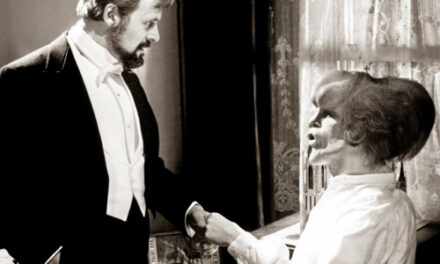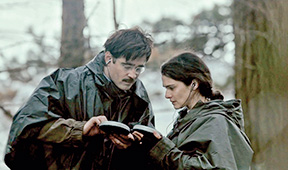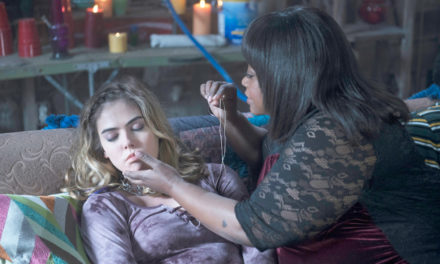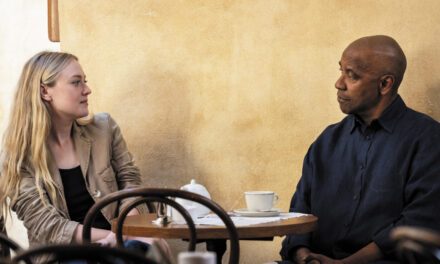Say what you will about Mel Gibson, he knows how to direct a film. That’s clearly been evidenced in critically acclaimed affairs such as Braveheart, Apocalypto and the crowd pleaser, The Passion of the Christ. Some may argue the artistic merits of the films in Gibson’s canon as a director but that’s another story. Still, he knows how to effectively stage astounding scenes that have a tendency to stay with the viewer and there’s no denying that.
Gibson’s latest effort, Hacksaw Ridge, bears something in common with those films in that it proves once again that nobody does cinematic ultra violence quite like Gibson. Hacksaw Ridge, due to the fact that it’s a war film of sorts, has it share of such violent interludes. Especially during the final hour where the violence reaches grisly proportions that have rarely been seen in a mainstream film even if the subject happens to be war. The level of violence was such that one couple actually got up and walked out of the screening I attended at around the ninety-minute mark. This is not a film for the faint of heart, but since it is an ostensibly an anti-war film that may be a good thing. The horrors of war are properly illustrated in some of the most arresting battle scenes I’ve seen in at least twenty years. In fact, I’d probably have to go back to Steven Spielberg’s Saving Private Ryan to find anything that would even come close in terms of a cinematic portrait of the sheer brutality of war.
Hacksaw Ridge is the true story of Desmond Doss (Andrew Garfield). What makes Doss’ story worth telling is that he saved the lives of 75 men in Okinawa in spite of never firing a gun during one of the bloodiest battles in all of WWII. Doss was a conscientious objector and though he wasn’t exactly against war if it was truly justified, Doss just couldn’t get behind the idea of killing another human being.
The film is divided into two sections. The first depicts Doss’ idyllic life in rural Virginia and his struggles with his military superiors after he enlists in the Army in the hopes of becoming a medic. This section of the film proves to be the weakest, containing too many scenes of sophomoric humor for my taste and feeling shamelessly manipulative at times. Once the film switches to the actual battle at Hacksaw Ridge, around the one-hour mark, it truly begins to hit its stride.
Much of the casting in the film is noteworthy. In particular, Rachel Griffith and Hugo Weaving turn in effective performances as Doss’ parents. Vince Vaughn and Sam Worthington, turning up as Doss military cohorts, also prove to be particularly adept in their respective roles. Hacksaw Ridge may not be a perfect film but it’s one half of a pretty spectacular one.
Adam Long: [email protected]









